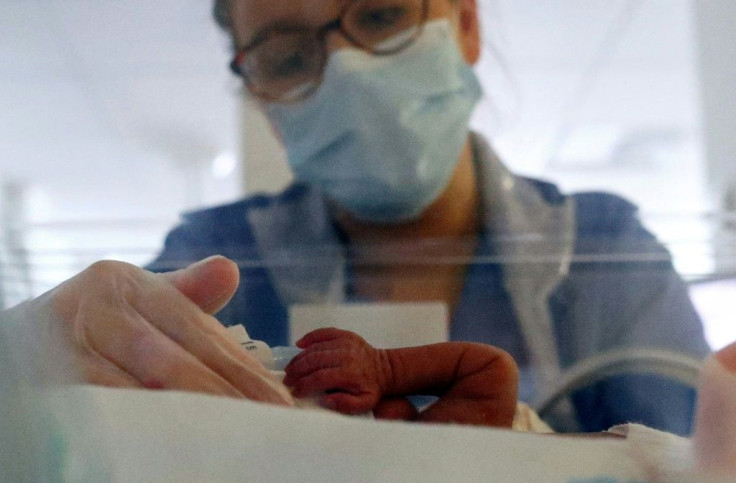Baby In Singapore Born With COVID-19 Antibodies
KEY POINTS
- The woman contracted COVID-19 in March following a family trip to Europe
- Her baby was found to have COVID-19 antibodies when he was born in early November
- Much is still unknown about the risks of COVID-19 to newborns
A baby in Singapore was born with COVID-19 antibodies months after his mother fell ill with the virus.
The pregnancy journey of a family in Singapore was not an easy one. Celine Ng-Chan, her mother and her daughter all tested positive for COVID-19 in March following a family trip to Europe, The Straits Times reported. At the time, she was 10 weeks pregnant. She and her daughter had a mild illness but her mother had to spend 29 days attached to a life support machine.
On Nov. 7, months after the family members recovered from COVID-19, Ng-Chan gave birth to a healthy baby boy who reportedly had COVID-19 antibodies.
"It's very interesting. His pediatrician said my COVID-19 antibodies are gone but Aldrin has COVID-19 antibodies," Ng-Chan said, according to the outlet. "My doctor suspects I have transferred my COVID-19 antibodies to him during my pregnancy."
Vertical transmission
Information on vertical transmission from mother to fetus is still limited but doctors advise expectant women to take extra precautions to avoid getting infected.
According to the Royal College of Obstetricians and Gynecologists in the U.K., while vertical transmission, or the transmission from a mother to her baby before birth, does happen, it is "uncommon."
"If it does occur, it appears to not be affected by mode of birth, method of feeding or whether the woman and baby stay together," the group noted.
The Centers for Disease Control and Prevention (CDC) says, "Infections causing COVID-19 in newborns born to mothers with COVID-19 are uncommon. Some newborns have tested positive for the virus that causes COVID-19 shortly after birth. It is unknown if these newborns got the virus before, during, or after birth from close contact with an infected person."
Such was the case of the newborn who tested positive for COVID-19 in London earlier in the year.
The World Health Organization (WHO) said it is still unknown whether women can pass COVID-19 to their fetus or newborn child during pregnancy or delivery.
"To date, the active virus has not been found in samples of fluid around the baby in the womb or breastmilk," the WHO said.
Pregnancy and COVID-19
Expecting mothers are said to be at a heightened risk for COVID-19. According to the CDC, pregnant people are at higher risk of contracting a severe illness from COVID-19 compared to others who are not pregnant.
It is important for pregnant women to take preventive steps against the virus, including wearing a mask, social distancing, proper hand washing, and even getting the flu and whooping cough vaccine.

© Copyright IBTimes 2024. All rights reserved.






















